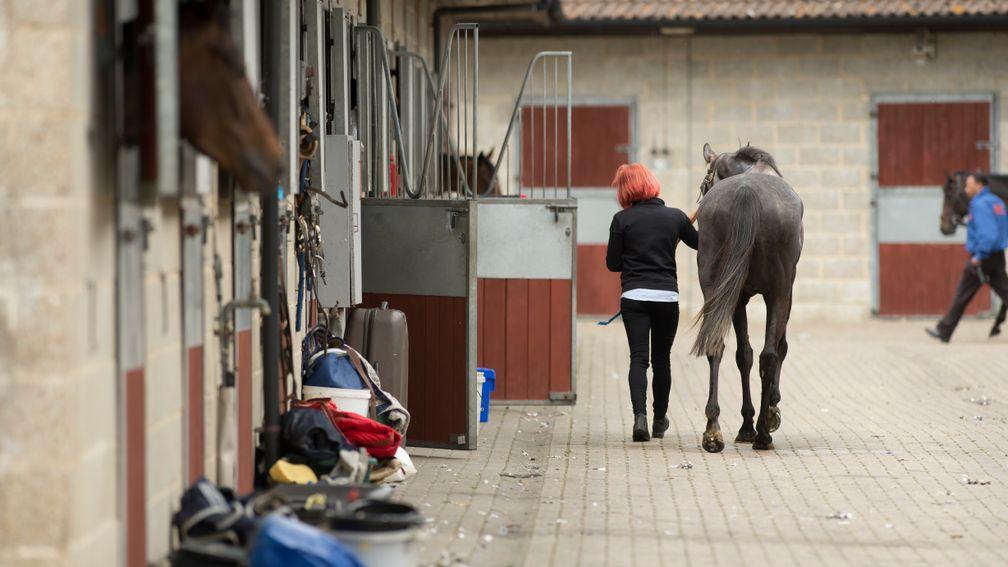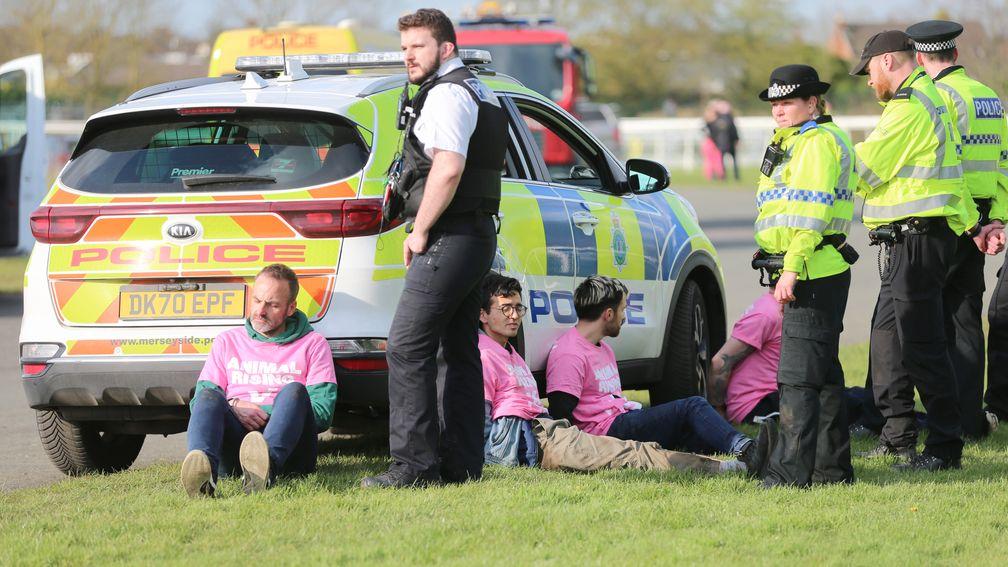Letters to the editor: staff should be looked after as well as horses

Like everyone else no doubt, I read the recent story about trainer Robyn Brisland and his colleague William Degnan being fined for overseeing “a toxic culture” at their yard (April 18) and was utterly disgusted by its content.
How on earth is it appropriate to have a situation that leaves staff members in tears and working through fear and injury?
Presumably neither Brisland nor Degnan began their journey in racing with this intention, but anyone thinking it has always been like this and it hasn’t done any harm seriously needs an urgent reset of their moral compass.
It is sad to think that these views still exist, and the associated behaviour is in fact the worst threat to solving our staffing crisis.
It was an extremely weak argument for them to also claim the Covid pandemic caused a lot of stress. I can’t believe making the staff cry would have helped alleviate that stress.
I have noticed a few comments online criticising the workers for staying in their jobs. This is not where the focus should lie.
Sometimes it is hard to understand how staff end up working in the thankfully small minority of yards that foster a culture of fear and toxicity.
No-one would attend a job interview and witness this type of behaviour and willingly sign on the dotted line. It is a slow process that steadily picks away at your self-esteem until you feel so bad about yourself that you start to question whether you would be able to get a job elsewhere.
Many years ago, I started a job on a trial period and at the end of the trial nobody would say whether or not I had got the job. So I carried on working, but it stayed in my mind that maybe I hadn’t quite made the grade. Eventually I plucked up the courage to ask and got a resounding yes from the trainer.
When I told the secretary I’d been given the all-clear, she said: “Well we didn’t want to make a decision quickly because we wanted to see if you could take a bollocking first.”
That should have been a big red flag for what was to follow, but I was enjoying the job so I stuck at it until a time that the good days no longer outweighed the bad.
I feel desperately sad for the victims in this case.
In time I hope there will be a mandatory training course for anyone in racing who is trusted with managing people. Being a head lad or assistant trainer is not about being a good rider or a friend of the family, it is about looking after the team as well as the horses.
Let us hope the BHA continues to make racing a better place for everyone.
If you are in a situation that is causing you a great deal of stress and anxiety, please contact the National Association of Racing Staff (NARS) or Racing Welfare. There is plenty of support available.
Julia Bennet
NARS representative
Part and parcel of life
The ignorance of the protesters who delayed last Saturday’s Grand National needs to be viewed in a wider context.
Their rationale to want jump racing abolished would lead to the unemployment of thousands of people, a destruction of the racing industry and the inevitable deaths of racehorses no longer properly cared for and with no purpose.
The activists will argue that while humans have free will and can therefore choose whether to climb a mountain or drive fast cars, horses have no such luxury.
This opinion does the horse a great disservice, because as intelligent animals they will not race if they don’t want to and there are countless examples of this happening.
Allow me to pinpoint the case of Vindobala, who refused to come out of the starting stalls at Newcastle last month (March 15).
It also needs pointing out that there would be no future for the thoroughbred if racing was abolished. Are we to deny them the right to a life at all because it involves risk?
Did it ever occur to these activists that these horses might actually enjoy their life of racing and being so well cared for?
It is time for the public to embrace the idea that racehorses, like humans, engage with risk as part and parcel of their lives.
Mark Pennington
Liverpool

Pointing way forward
Tim Williams’ insightful column on the Grand National (April 21) was a refreshing change from the simplistic assertions masquerading as arguments that are often presented by both sides of the pro/anti National debate.
As Williams suggests, racing needs to get ahead of the game in the National by, for example, reducing the field size and altering the position of the start.
As he points out, public perceptions of horse welfare have changed over the decades, something I as a racing fan for more than 60 years can recognise. And I now find the race a more uneasy watch than I did as a young man.
We must engage properly with the public’s anguish over the participants’ safety instead of dismissing it as just being “part of the game”.
Williams has done racing a service in pointing the way forward if we wish to have the continued support of the public for this great race.
Ken Wheeler
Newcastle
30 runners about right
As a horseracing fan of some 55 years, I felt I had to give the Grand National another coat of thinking after this year’s race.
Erudite submissions and responses to criticism have been made, and some of that criticism has bordered on, if not touched on, being extreme.
I don’t need to restate in detail the wonderful love and care racehorses receive. However, in terms of more modifications, other than making it a Flat race, which means it is no longer the Grand National, a change I do think is viable and would be seen as responding to problems this year is a 25 per cent reduction in the field size.
Up to 30 runners is still a big field for experts and pinstickers alike, the odds of loose horses bunching and causing problems as per last Saturday are reduced plus jockeys would have more working space.
I really want the National to continue being the great sporting event it is, but I do think a maximum of 30 runners would be a positive step for the good of its future.
Mike Bell
Ashford, Kent
It’s the 2097 National
I had a dream this week of the Grand National in the year 2097. It wasn’t called the Grand National anymore and was instead known as “That bloody Liverpool race”.
The maximum field of ten lined up for the event over two miles. The runners were now known by registration numbers. Last year’s winner, a chestnut unicorn named 67814, was not allowed to take part this time as no horse could run in the race more than once.
The jockeys were AI plastic versions weighing just a few ounces, as humans weren’t allowed to ride horses any longer. All equipment such as the reins, bits etc were banned many years ago.
The race was once again delayed by activists for the group Stop Eating Plants Eat Soup Instead.
Gambling had been banned. Bookmakers were a product of the 20th century and certainly had no place in the enlightened late 21st century.
There was also no winner in 2097 as it was deemed unfair on the other horses to be losers. They were all winners in this progressive world.
I have decided I’m going to stop eating cheese before going to bed.
Paul Kent
Tunbridge Wells, Kent
It has a negative effect
I totally agree with David Jennings’ column regarding Pat Cosgrave’s ‘showboating’ at Chelmsford (April 20). However, I do wonder if we in Britain have a different attitude to trying to win cleverly.
If any jockey tried those flashy rides in most jurisdictions and slipped up as Cosgrave did, what would the penalty be?
A 28-day ban is what was issued, but imagine if the penalty was six months out. Would we then see such rides from jockeys anymore?
There must have been countless punters who banked on Concorde at Chelmsford. What, I wonder, would be the penalty they would have imposed on Cosgrave?
We still hear pundits saying this will happen again, as if it is just one of those things that followers of the sport have to accept.
However, these kind of rides that result in the worst possible outcome have nothing but a large negative effect on those who pay into the sport, either as an owner, punter or race follower.
Mo Charge
King’s Lynn
These letters are exclusive to Members' Club Ultimate subscribers. Read more Members' Club content here
Ban jockeys even when they win - and then we might stop this senseless showboating
Racing does not need to appease the antis - it's the middle ground that must be won

Sign up to receive On The Nose, our essential daily newsletter, from the Racing Post. Your unmissable morning feed, direct to your email inbox every morning.
Published on inLetters
Last updated
- Racecourses must take note, many people still use cash
- Crowds can return to the racetrack if we deal with the costs and touts
- Don't ditch classifieds - we need these types of races more than ever
- Parading the runners at racecourses must be front and centre
- John Dawson’s overzealous ban for Hunters' Chase winning ride ruined a wonderful story
- Racecourses must take note, many people still use cash
- Crowds can return to the racetrack if we deal with the costs and touts
- Don't ditch classifieds - we need these types of races more than ever
- Parading the runners at racecourses must be front and centre
- John Dawson’s overzealous ban for Hunters' Chase winning ride ruined a wonderful story